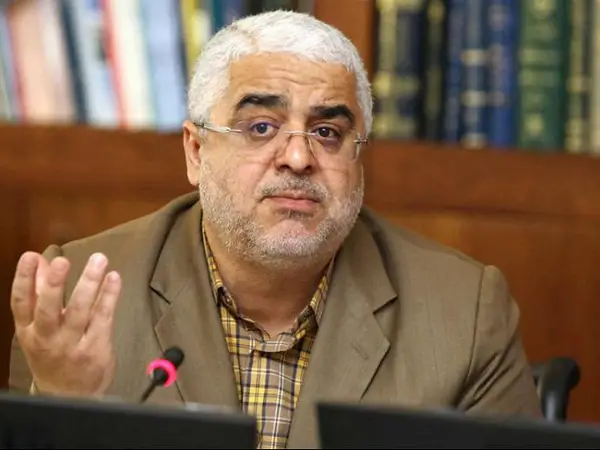A former lawmaker has called on the Iranian parliament to pass strict legislation banning any activity by members that could represent a conflict of interest.
Gholasmali Jafarzadeh Imanabadi, a staunch critic of Majles Speaker Mohammad Bagher Ghalibaf and his self-proclaimed “revolutionary” parliament said in an interview with moderate news website Rouydad24 that new legislations are needed to define the word “revolutionary” so that lawmakers who are not revolutionaries could be dealt with.
A few weeks ago, the representatives of university students asked Supreme Leader Ali Khamenei not to label the Majles “revolutionary” following the scandal of Ghalibaf’s family taking a controversial luxury shopping trip to Turkey in April.
In a speech during another meeting with Iranian lawmakers on Wednesday, Khamenei said that although they chanted revolutionary slogans during their election campaigns, what is important is continuing to remain a revolutionary rather than claiming to be one.
Earlier this week, an IRGC general who spoke on Iranian state television also questioned officials’ claim of being revolutionaries, charging that some 4,000 children of senior officials are living a luxurious life in other countries, mainly in the United States, Canada and Europe.
Referring to the argument of some officials saying that their children are “independent,” Imanabadi said that if there were conflict-of-interest laws, officials could no longer claim that their private life was separate from their revolutionary facade.
He said that lawmakers should not try to complicate the conflict-of-interest issue, prolonging the legislative process and evading their responsibility. He referred to Khamenei’s remarks and said “we need a law to restrict their activities” in cases of conflict of interest.
“This means a lawmaker cannot use government properties for personal use. A lawmaker should not accumulate wealth in illegitimate ways. Lawmakers should not have business interests, and their close relatives cannot shop for their babies abroad, or buy houses in a foreign country,” Imanabadi said in a clear reference to Ghalibaf’s case.
During the past years many Iranian officials were said to have sent their family members abroad where they live a luxurious life at a time when people in Iran are facing a more than 40-percent inflation rate and rising poverty.
Among these officials, it was only Seyyed Morteza Saqqaian Nelda the Mayor of Qom who acknowledged that six of his children are living in the United States. As photos on social media showed them in typical Western recreational activities last year, the mayor said that his children are living abroad to propagate the ideology of the Islamic Republic.
Mehr news agency reporting about the mayor’s children in America teased the mayor by saying that he should be the mayor of Washington DC rather than the mayor of Qom.
Imanabadi further said in the interview, “The people believe officials have a good life and that they do not understand their difficult economic situation.”
He further argued that if there were laws about conflict of interest, lawmakers could no longer own big companies given to them by the state at low prices, “they could no longer take hefty loans [from government banks] to buy luxurious homes and they would know that they cannot have salaries higher than a cabinet level official, and they cannot give good jobs to their relatives or take them on luxury trips to other countries.”
Also mentioning the case of a former lawmaker, who got an extremely well-paid job at the oil ministry at the end of his four-year term, although he was previously a teacher, Imanabadi said that members of parliament are not entitled to such tailored-made jobs. He stressed: “Serving as a lawmaker is not an investment!”
